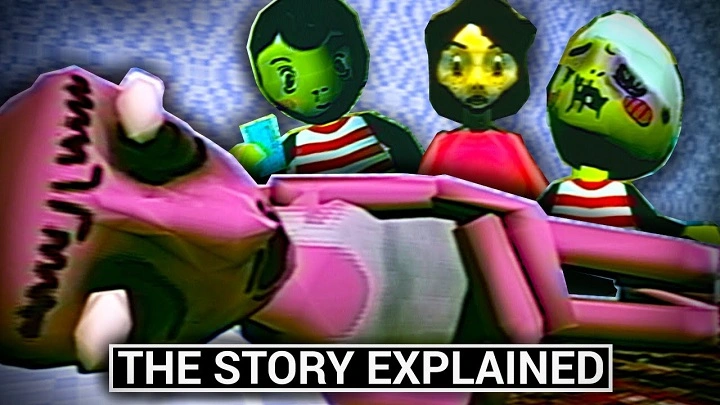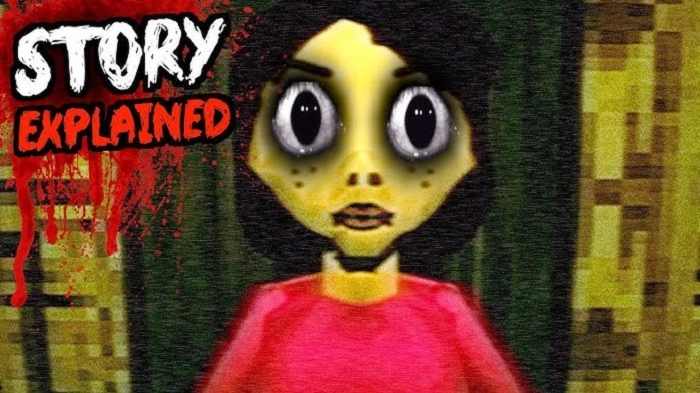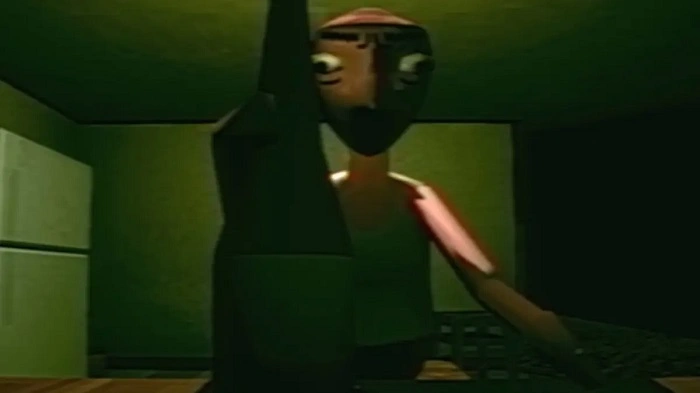Alright, let’s kick things off with a question that’s been bouncing around like a kid hyped up on soda: Is “Bad Parenting” based on a true story?
You’ve probably watched the movie or read the book—maybe even stumbled upon it during a late-night scroll through Netflix or your dusty bookshelf. And then you wondered, “Whoa… did this actually happen?” You’re not alone.
See, stories about parenting—especially the messy, chaotic, tear-your-hair-out kind—tend to hit home for a lot of us. Whether you’re a parent yourself, grew up in a not-so-perfect home, or just love a gritty family drama, you probably found yourself wondering if the wreckage onscreen (or on the page) had roots in real life.
So, let’s dive deep—like, deeper-than-the-laundry-bin kind of deep—into the world of bad parenting stories, peel back the layers of truth and fiction, and maybe, just maybe, come out the other side with some answers.
First Things First: What Exactly Is “Bad Parenting”?
Okay, we’re tossing around the phrase “Bad Parenting” like confetti, but what are we really talking about? Is it the name of a movie? A book? A lifestyle choice? (Kidding… sort of.)
Truth is, “Bad Parenting” could refer to a handful of different things depending on the context. There’s no single Hollywood blockbuster or best-seller titled just “Bad Parenting,” but there are a bunch of films, shows, and books that dive into the theme. You’ve got dramatic TV episodes, indie flicks, and documentaries where dysfunctional parenting takes center stage.
Think of stuff like Precious, The Florida Project, or even episodes from Shameless—stories where the grown-ups in charge really drop the ball (or toss it out the window). And honestly? A lot of those do draw inspiration from real life.
So.Is It Based on a True Story or Not?
Here’s the twist: most “bad parenting” stories aren’t 100% true—but they often come from very real places.
Writers, directors, and creators pull from their own experiences, news headlines, interviews, and even therapy sessions (seriously) to craft these gut-punching narratives. They might not be recreating a single true story, but they are weaving together threads from reality.
For example, a screenwriter might not have lived through the exact events in a film, but they might’ve grown up with an emotionally distant mom, or a dad who thought discipline meant silence. Mix in some imagination, a bit of storytelling magic, and boom—you’ve got a “fictional” story that feels scarily real.
It’s kinda like when your friend tells a story that’s “based on true events,” but then you find out they totally exaggerated half of it for dramatic effect. Same vibe.
Real-Life Inspirations Behind Popular “Bad Parenting” Stories
Let’s take a peek behind the curtain of some iconic, tough-to-watch parent-child dramas and see just how close to home they really hit.
Precious (2009)
This one’s hard to forget. Based on the novel Push by Sapphire, it tells the harrowing story of a teen girl abused by both her mother and father. And yeah, it’s fictional. But the author was inspired by stories she heard while teaching literacy in Harlem. Real kids. Real trauma.
So while Precious isn’t someone’s personal diary, it’s a mosaic of many painful realities.
The Glass Castle (2017)
Now this one is definitely rooted in reality. Based on Jeannette Walls’ memoir, it tells the story of growing up with brilliant but deeply flawed parents—drifting through poverty, alcoholism, and neglect. It’s raw, honest, and 100% from her lived experience.
If you’re wondering what bad parenting looks like in real life, Walls’ story hits like a sucker punch.
Shameless (U.S. version)
Frank Gallagher—arguably one of TV’s most infamous bad dads. While the show is fiction, it’s inspired by the original UK version, which was rooted in writer Paul Abbott’s own childhood. Abbott himself was one of eight kids raised by an alcoholic father after their mother left.
So yeah… not entirely made up.
Why Do These Stories Feel So Dang Real?
It’s simple: because bad parenting isn’t rare.
Most of us can point to moments—big or small—where the adults in our lives fumbled. Maybe your mom guilt-tripped you like it was her Olympic sport. Or your dad forgot every birthday except his own. Or maybe it was more serious—like neglect, verbal abuse, or flat-out absence.
Whatever the flavor, these stories ring true because they reflect stuff people actually go through.
Here’s a quick personal moment: I had a friend growing up whose parents were always out—like, always. We’d joke that their dog raised them (which, honestly, wasn’t far off). She used to say, “If I ever write a book, it’s gonna be called Raised by Bark.” We laughed, but you could feel the ache behind the joke.
When Fiction Helps Us Heal
Here’s the beautiful, ironic thing: bad parenting stories—despite being tough to watch or read—can actually help us heal.
How? Well…
- Validation – They remind us we’re not alone.
- Clarity – They help us name what we went through.
- Empathy – They let others understand what it’s like.
For many folks, watching a movie like The Florida Project or reading something like Running with Scissors (yup, that one’s based on real events too) helps untangle decades of “Was it just me?” kind of feelings.
And sometimes, fiction can even be safer than fact. It’s a softer entry point. You can say, “It’s just a story,” while quietly seeing your life mirrored in the scenes.
The Myth of the Perfect Parent (Spoiler: They Don’t Exist)
Let’s flip the script for a second.
When we talk about “bad parenting,” we have to remember: no parent is perfect. Every mom, dad, step-parent, guardian—you name it—screws up. Maybe they’re too strict. Or too lax. Maybe they just didn’t know any better.
There’s a difference between harmful parenting and human parenting.
Good storytelling blurs that line. It shows us the messiness, the contradictions. The mom who yells but also cries when her kid gets hurt. The dad who drinks too much but shows up to every school play. The grandma who raises her grandkid with tough love because she had no other choice.
These gray areas? That’s where the best stories live. And honestly, that’s where a lot of us live, too.
What Makes a “True Story,” Anyway?
Let’s get philosophical for a sec.
Does a story have to follow real events, beat by beat, to be “true”? Or is emotional truth just as valid?
You can watch a totally made-up film and still feel like, “Whoa… that was my childhood.” That’s truth. Not in the legal sense, maybe, but in the “deep in your bones” sense.
Stories about bad parenting may not all be documentaries, but the feelings? The confusion, anger, sadness, guilt, and longing? Those are realer than real.
Final Verdict: So Is “Bad Parenting” Based on a True Story?
Drumroll, please
Yes and no.
It depends on the specific story you’re asking about. Some are directly based on real-life experiences (The Glass Castle), others are composites of many true accounts (Precious), and some are fictional but emotionally authentic (Shameless).
What ties them all together? They’re rooted in the messy, imperfect, all-too-human world we live in.
Wrapping It All Up (With a Slightly Wrinkled Bow)
Look, parenting is tough. Messy. Beautiful. Heartbreaking. And sometimes? It’s downright bad.
Whether or not the stories we watch or read are “true” in the strictest sense doesn’t always matter. What matters is how they resonate. How they open our eyes. How they start conversations.
So the next time someone asks, “Is bad parenting based on a true story?” you can smile and say:
“Well, maybe not word for word—but it sure as hell feels like it.”
Bonus: A Quick Gut-Check
Want to know if a story might be inspired by real life? Here are some tell-tale signs:
✅ It’s a memoir or autobiography
✅ You spot “Based on a true story” in the credits
✅ The writer talks about their personal experiences in interviews
✅ The emotions feel painfully specific (like, uncomfortably so)
✅ You find yourself saying, “Wait… that actually happened to me”
If bad parenting stories hit a little too close to home, that’s okay. Sometimes they’re tough to sit through—but they can also be a mirror, a release, or even a reminder that we’ve come a long way.
And hey, if you’re a parent yourself? Maybe they’re a nudge to break the cycle, rewrite the script, and aim for better—not perfect, just better.
Because let’s be honest… no one’s got this parenting thing totally figured out. Not even the ones writing about it.



